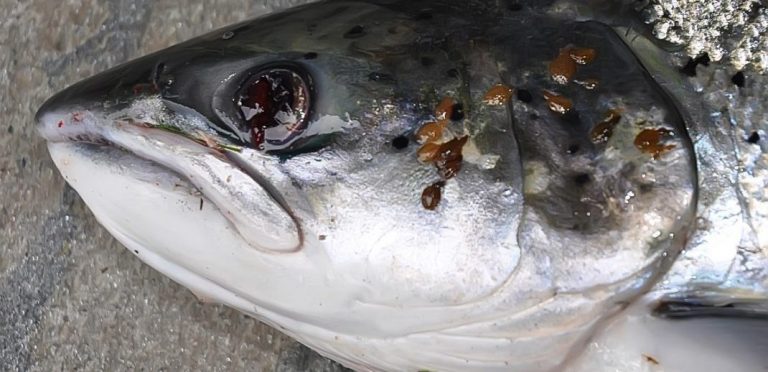A formal Petition, lodged in the Scottish Parliament in February 2016* by Salmon & Trout Conservation Scotland, seeking protection for wild salmonids from sea lice from Scottish salmon farms, has resulted in MSPs launching an Inquiry into the salmon farming industry in Scotland.
The Rural Economy and Connectivity Committee of MSPs agreed at Holyrood this week to conduct a full-blown Inquiry into salmon farming in Scotland and the issues raised in S&TCS’ Petition.
Guy Linley-Adams, for S&TCS, said:
“We are delighted that MSPs of all parties have shown such concern and interest and we thank them for launching this Inquiry. This will enable S&TCS to bring all MSPs attention to what they can do to protect Scotland’s iconic wild salmon and sea trout, and the wider Scottish environment, from the damage it is currently suffering as a result of salmon farming in marine open cages.
“This is a vindication of what S&TCS has been saying for some years. It hasn’t always been a very popular message in some quarters, but the message has now got through and MSPs have taken the first steps towards a solution”.
S&TCS’ Aquaculture Campaign’s 2016 Petition recommends that the Scottish Parliament should seek to amend the Aquaculture and Fisheries (Scotland) Act 2007 to give Scottish Ministers a statutory duty to inspect farms and enforce sea lice control on salmon farms. This is for the express purpose of protecting wild salmonid fish from juvenile sea lice infestation from marine cage fish farms, and statutory powers to order immediate culls of any marine cage fish farm where average adult female sea lice numbers of farmed fish remain persistently above Code of Good Practice thresholds.
Over the medium term, S&TCS argues that those farms consistently failing to control sea lice should be closed or relocated to move the worst performing farms away from salmonid rivers and migration routes.
Finally, S&TCS supports a renewed focus on moving to full closed containment of farmed salmon production in Scotland, with complete ‘biological separation’ of wild and farmed fish.
* Fisheries scientists – including the Scottish Government’s own scientists – are firm in their conclusions that sea lice produced on fish-farms harm wild salmon and sea trout, both at an individual and at a population level.
However, S&TCS believes that these threats are not being addressed by effective regulation and control of sea lice numbers on fish-farms in Scotland, which are essential to protect wild fish populations, many already significantly reduced.
In 2016, the S&TCS raised a formal Petition to the Scottish Parliament, which seeks to change the law, firstly to require immediate culls or harvesting of farmed where sea lice numbers have effectively gone out of control and secondly to give fish farm inspectors the legal duty to control sea lice on fish farms, expressly to protect wild fish populations from juvenile sea lice infestation from marine cage fish farms.
The Petition has been considered by the Scottish Parliament’s Rural Economy and Connectivity Committee.

